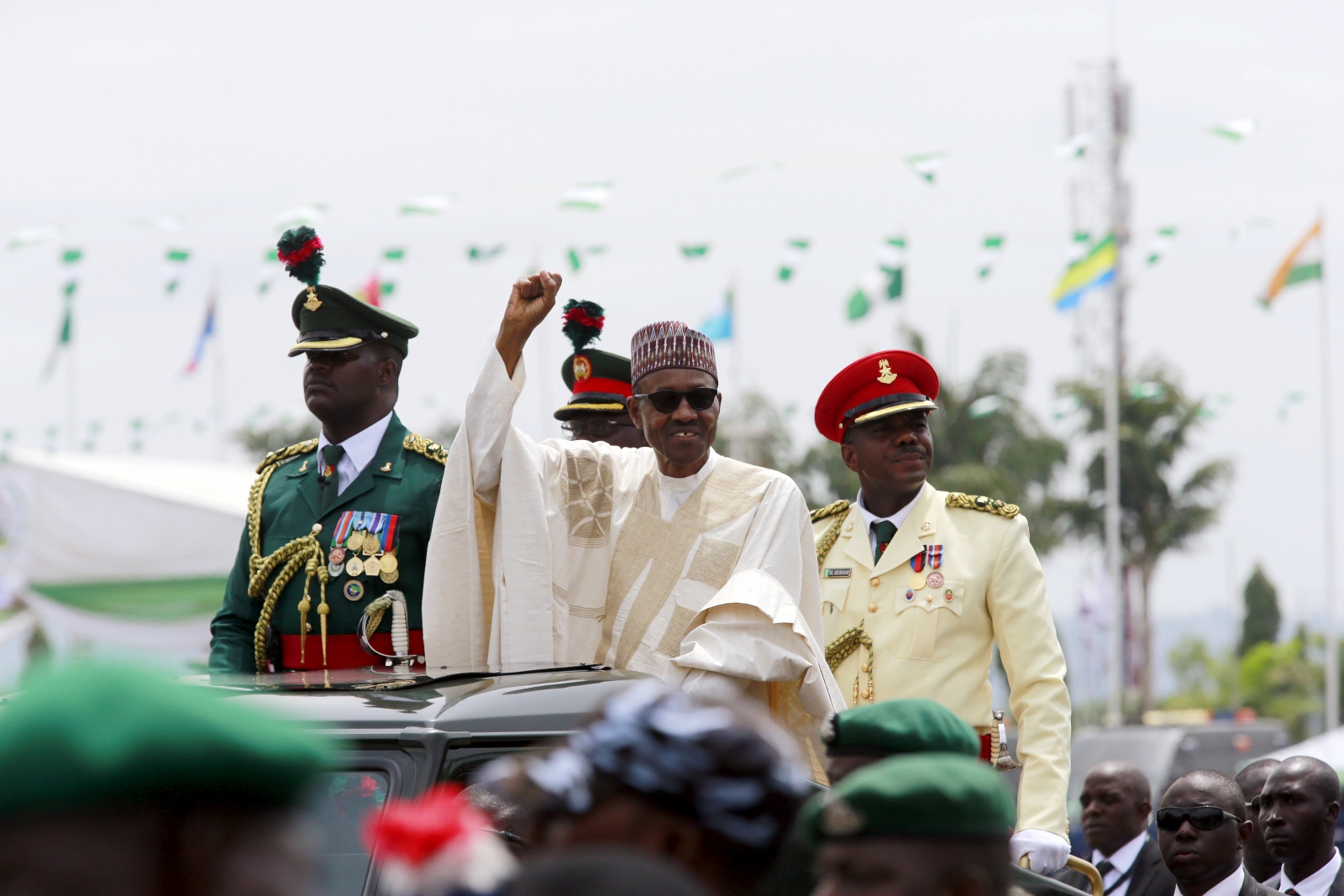[dropcap]S[/dropcap]ix months ago, President Muhammadu Buhari took the oath of office, promising CHANGE! According to his campaign rhetoric his priorities would be fighting corruption, defeating Boko Haram in 3 months and revitalizing the economy. Given Buhari’s military history in government as commissioner, minister, governor, and military head of State, the four attempts it took for him to become a civilian president, and how masterfully he sold the CHANGE agenda to the Nigerian electorate, most were convinced Buhari knew what he was talking about. The expectation was that he would not only deliver, he would hit the ground running.
The euphoria that heralded the new sheriff-in-town was further exaggerated by a temporary surge in some services such as electricity and fuel supplies. This surge which could not have happened if the service-pipelines were not previously primed by the outgoing administration, was however credited to the ‘body language” of President Buhari, who at the time was yet to move into his official Presidential quarters.
Nevertheless, it did not take much time when doubts about Buhari’s capacity to implement his CHANGE agenda began to surface.
Within a few weeks of assuming office, he started telegraphing his preference for backward rather than forward looking, an approached that signals anything but change. Dan Millman, a world renowned gymnast and motivational speaker wrote in his book, titled Way of the Peaceful Warrior: A Book that Changes Lives, that “…the secret of change is to focus all of your energy, not on fighting the old, but on building the new.”
President Buhari may not have had the benefit of this wise counselling. He, right off the gate, got distracted by his obsession for witch hunting his predecessor President Goodluck Jonathan and his administration, in the name of a poorly thought out “fight against corruption”.
It should be recalled that, it was this same Jonathan whose administration was declared less corrupt than those of Presidents Olusegun Obasanjo and Muhammadu Buhari, by Transparency International – an independent non-governmental international agency, in their 2015 report.
It didn’t help matters, when after wasting over 3 months in office without ministers, in a move that disappointed even his most strident supporters, Buhari constituted his presidency and cabinet with mostly questionable characters from the past with no known skills to navigate today’s digital terrain.
These initial missteps were at a cost of significant political capital and momentum needed to initiate and implement his campaign promises, of ushering in positive CHANGE to various key sectors of our polity including; national security; conflict resolution, national unity and social harmony; job creation and the economy; agriculture and food security; infrastructure; oil and gas industry; education; healthcare; senior citizens, youths, sports and culture; women empowerment; environment and foreign policy.
Another reason behind Buhari’s chaotic take off may be that he has neither read nor has knowledge of his CHANGE manifesto, which requires or demands a reorientation of our polity. Otherwise why has he not focused like a laser beam on laying down the needed legislative infrastructure to accomplish his programs? Enduring societal change cannot be sustained by executive orders, as he has so far preferred, only enabling laws can.
In my assessment of Buhari’s first 100 days in office, I explained that “the tradition of a 100-day marker to assess presidential effectiveness was started by Franklin D. Roosevelt (FDR), in 1933, when he inherited the calamity of a depressed US economy. Faced with a collapsing economy, such as we face in Nigeria today, FDR hit the ground speeding! He engaged the US congress and eventually secured an unprecedented FIFTEEN landmark legislation, between March 8 and June 16, hence the birth of the “Fifteen legislation in 100 days” yardstick, for assessing Presidential performance and the foundation for FDR’s widely successful “New Deal” programs….”
Judging by this yardstick, since we operate the same Presidential system of governance, at the 100 days mark, I gave President Buhari an F grade, because he had introduced zero legislation in support of his agenda. It is sad to observe that the situation remains unchanged 6 months into his administration.
Score cards apart the reality as felt by most Nigerians, substantiate that most indices of progress are headed south and fast. The economy, job creation, stock market, petrol and electricity supply, insecurity, gender equity, extrajudicial impunity, civil servants, military and youth morale, infrastructure, support for education, healthcare and agriculture are all worse today than when Buhari took office.
President Buhari, unlike most Nigerians, may have figured out a way of living above means through the accumulation of estacodes from his numerous unproductive foreign travels. This also is not sitting well with Nigerians!
Where is Buhari’s messianic body language when we need it! How quickly body language has turned into body odor.
Edward Oparaoji is a professor of pharmacy and chairman, Nigerian-American Leadership Council, a Washington DC Based think-tank. Connect with him on Facebook.
The opinions expressed in this article are solely those of the author.







